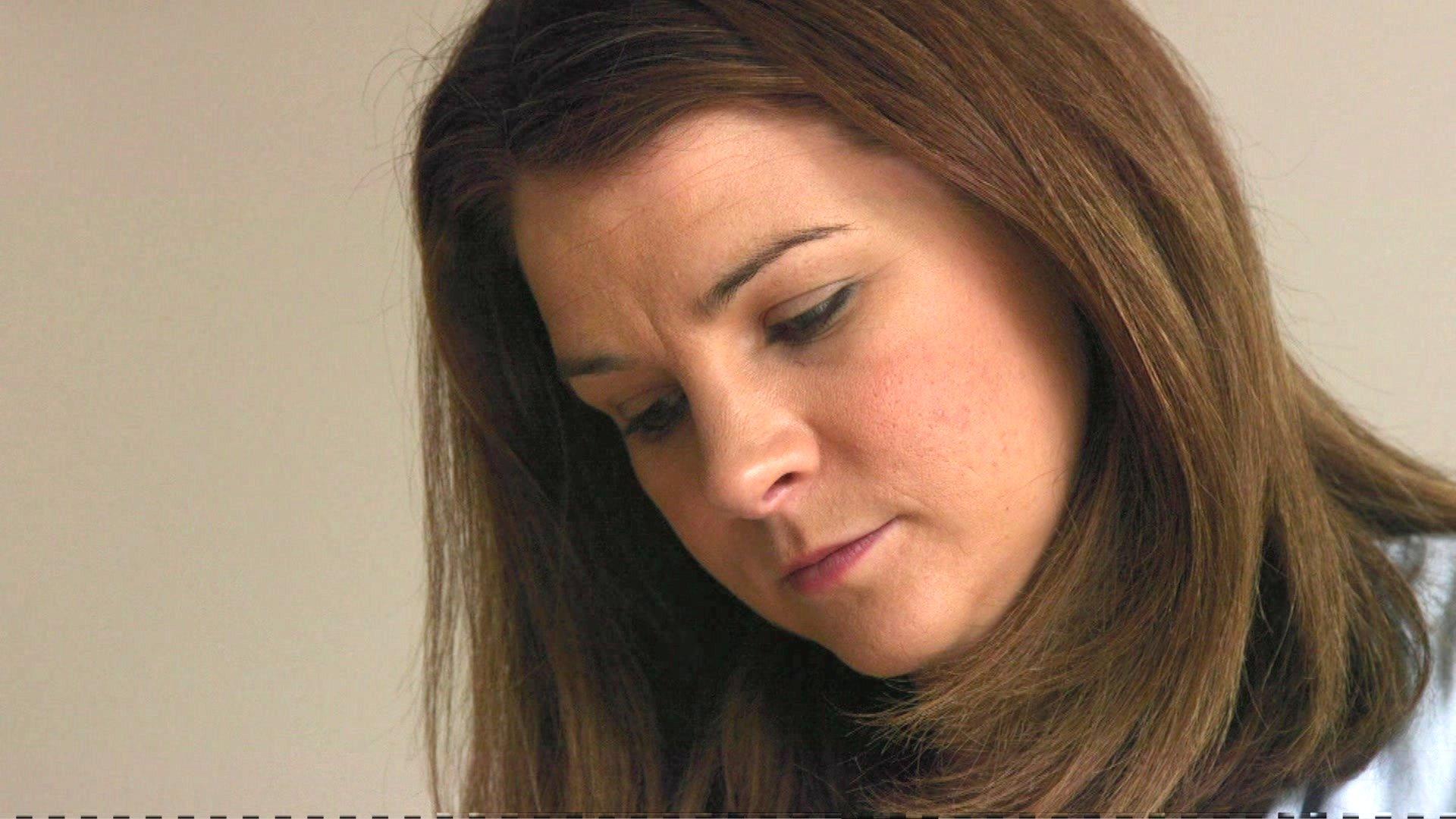Miscarriages: Joy for Cardiff mum who lost 10 babies
- Published
Jen and Andrew Bickel, of Cardiff, suffered 10 miscarriages before having a baby.
Two years ago, the BBC told the story of how Jen Bickel and her husband Andrew had spent a decade trying for a baby, instead enduring 10 miscarriages. Then, just when it seemed all hope was lost, their fortunes changed, as Jen, from Cardiff, explains.
There have been so many low points in my journey to becoming a mother, it's tricky to pick out the lowest.
Perhaps it was after I had both my fallopian tubes removed, scuppering my chances of ever conceiving naturally.
I didn't want to get out of bed. I didn't want to go to work or see people. I felt like I had crashed and burned, and it was only the support of my husband Andrew and wider family that got me through.
This was in April 2017, a decade after we first began trying.
Of course, as newlyweds, we never dreamed that having a baby would prove so testing. Back then, we were both fit and healthy 29-year-olds.
It was 2007, and at first, I fell pregnant quite quickly, miscarrying at six weeks before I actually even knew I was pregnant.
I was upset but not too devastated; we had time on our sides after all. But it was 18 months before I fell pregnant again, and this time I miscarried at 11 weeks.
Unsurprisingly, Andrew and I were devastated, especially when I was kept in hospital for medical management of the foetus, which involved hours of bleeding and pain.

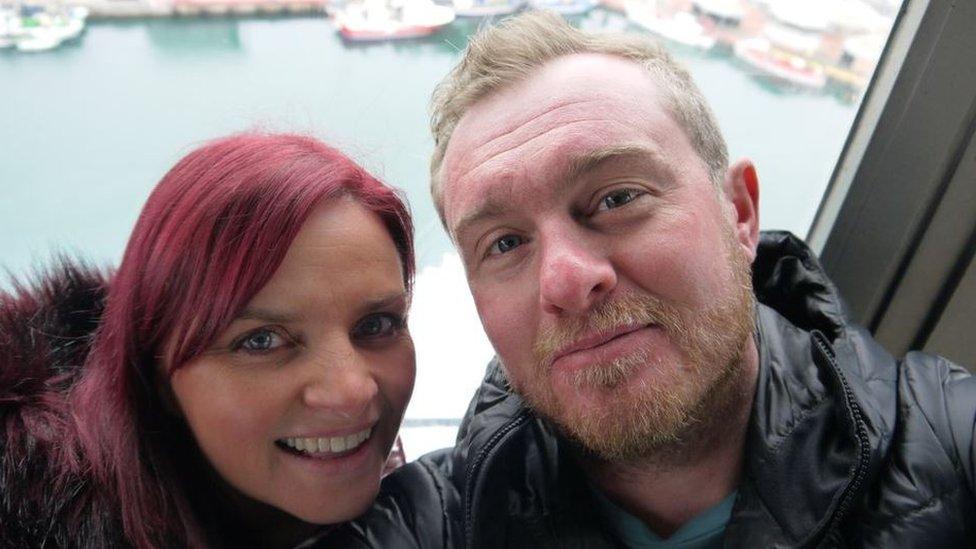
Jen and Andrew, both 40, met at high school
What is miscarriage?
A miscarriage is the loss of a foetus before 24 weeks
20% of all pregnancies end in miscarriage
Abnormalities in the baby's development are a key factor
Smoking, obesity and a woman's age can also play a part

But worse, was the effect of this second miscarriage upon our mental health.
Many of our friends were starting families, and although we were happy for them, it made our losses all the more acute. Personally, I couldn't help but blame myself. Why was my body failing me? What had I done?
In April 2009, I miscarried again after an early scan showed my baby had no heartbeat.
Then, in 2010, we decided to embark on IVF, hoping this would solve the problem, particularly as tests showed there was nothing specifically wrong with us.
Little did we know how hard this process would be.
In the first round, we created 10 embryos, yet none of them resulted in pregnancy. A few months later, we tried again, this time receiving a positive pregnancy test - but again a foetus with no heartbeat.
On this occasion, I came home and waited for the embryo to come away naturally, but it was no less painful or upsetting than being in hospital.
By this stage, we were desperate. Unsure of how to proceed, we paid out £2,000 for private tests, had acupuncture and bought supplements - yet nothing helped.
Still, we could not give up, so we had no option but to steel our nerves and keep trying.
In 2014, we had two embryos implanted at a private clinic, but, in the October, while out for my birthday, I felt a terrible pain in my side, which turned out to be an ectopic pregnancy.
This was the end of the road of IVF. We had no frozen embryos left, and no more money for treatment.
Amazingly, we were then thrown a lifeline when the IVF clinic gave us a free round, after nurses voted us the most deserving couple.
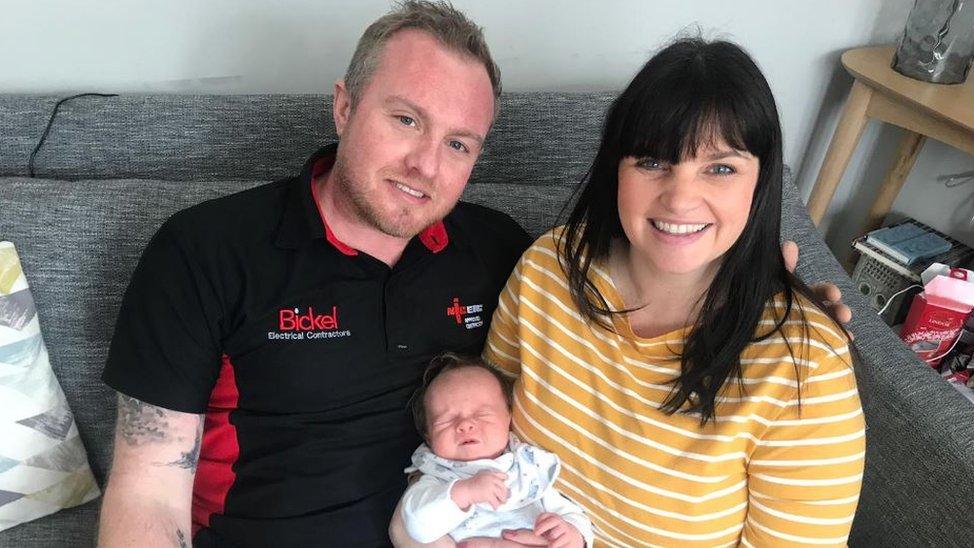
The couple found it difficult when their friends started having children
We implanted two embryos which failed, but froze a further three.
I then suffered two further ectopic pregnancies, resulting in both my fallopian tubes being removed.
I was heartbroken, knowing I would never conceive naturally. In total, over the past decade, I had fallen pregnant 10 times - six times naturally and four times through IVF - and we couldn't take anymore.
All we had were the frozen embryos - our last hope - and we were keeping everything crossed.
It took months before the lining of my womb was considered thick enough to try. But once it was, we implanted one embryo, and after another agonising two-week wait, received a positive pregnancy test.
We couldn't get our hopes up and during the scan, I lay on the bed holding Andrew's hand, filled with dread.
But there was something different this time - a tiny heartbeat, something we had never seen before. We were ecstatic.
Still, though, even when I went through morning sickness and learnt we were having a boy, Andrew found it hard to believe.
He was incredibly supportive, but he refused to shop for baby things or decorate the nursery until the very last weeks before my due date.
Due to my age - I was 40 - I was induced to make sure that the placenta didn't begin to fail.
But, after hours of contractions, doctors realised the baby's heartbeat was dropping as the cord was wrapped around his neck.
Everyone knew how high the stakes were - this could not go wrong - so I had a Caesarean, and in the early hours of 9 February, our miracle baby arrived weighing 6lb 8oz.
Bobi William Bickel is now six weeks old, and I do not care if he cries all day or wants to feed all night; I have everything I ever wanted.
Looking back, we still can't believe how lucky we are or why things finally worked. Was it because my tubes were removed? Was it down to the bit of weight I lost?
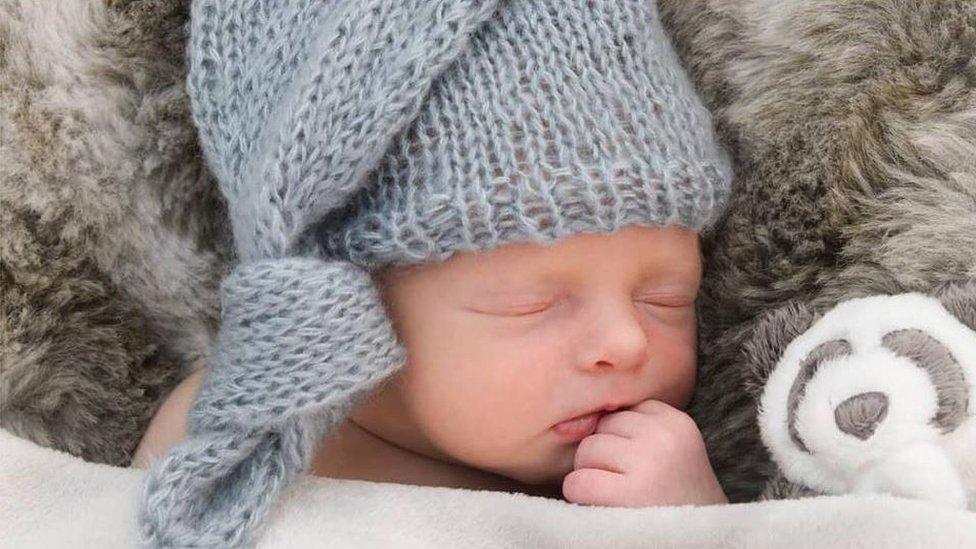
Baby Bobi arrived six weeks ago
Either way, we simply want to share our story as so many other couples are going through similar heartbreak.
Struggling to conceive is incredibly hard - physically, mentally and emotionally.
Andrew and I were always each other's rock, but we would advise people to seek support.
As for us, we still have two embryos in the freezer and I'm sure at some point we will try and implant them.
If they work, so be it. If not, we have our beautiful boy, and after more than a decade of heartbreak, we could not be more grateful.
Help and advice: If you or someone you know has been affected by issues with pregnancy, try BBC Action Line for support
- Published25 June 2017
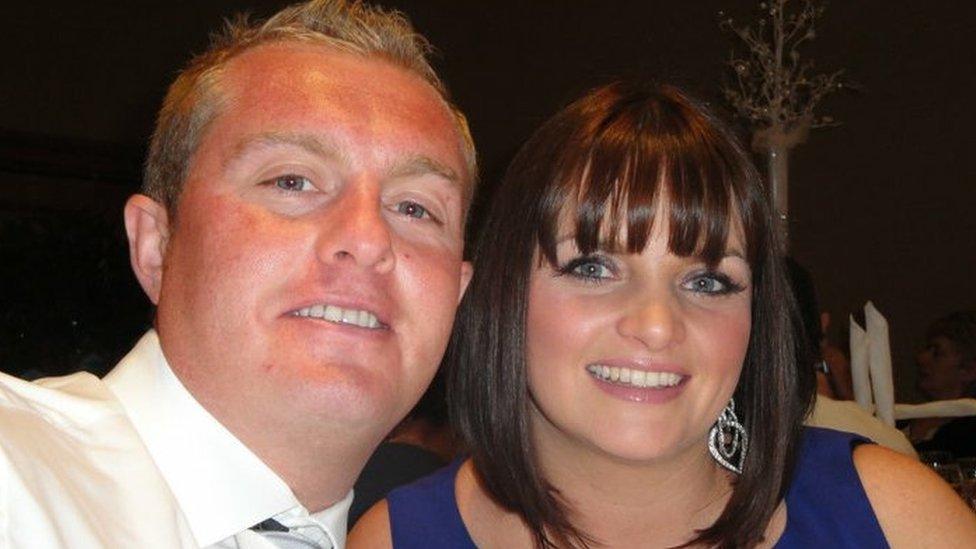
- Published1 January 2019
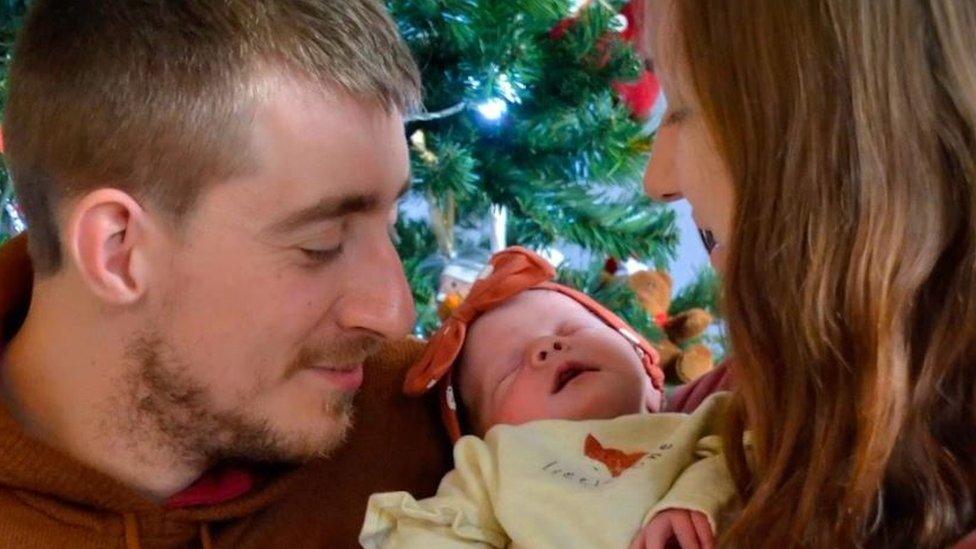
- Published1 August 2018
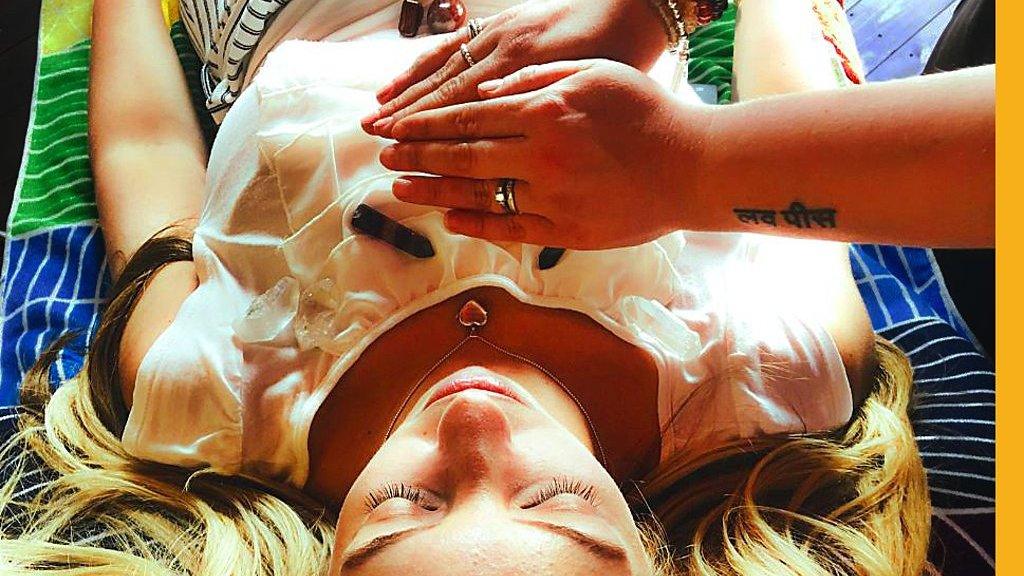
- Published28 September 2018
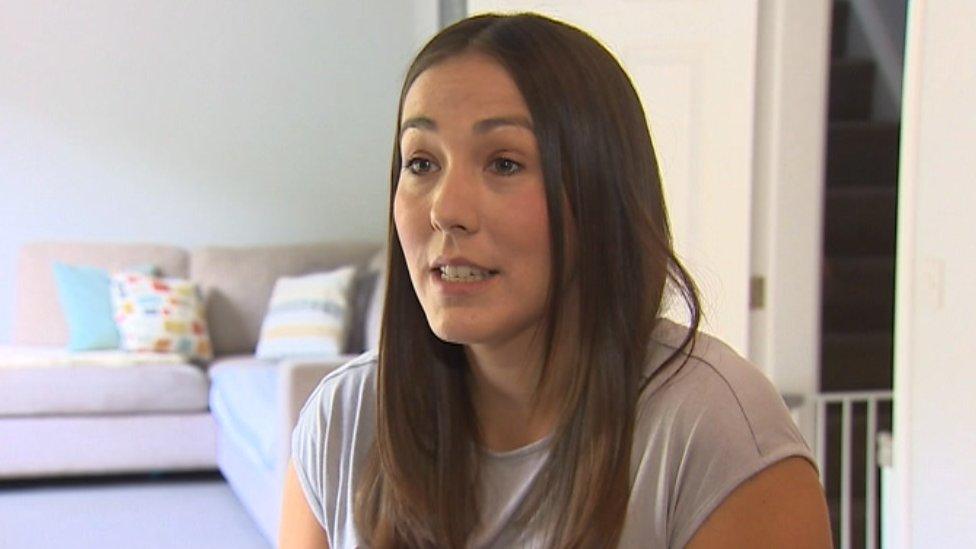
- Published22 April 2016
